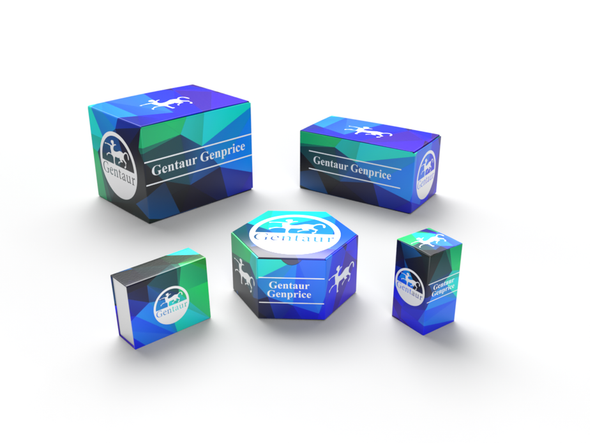Description
ACY1 Antibody | 22-148 | Gentaur UK, US & Europe Distribution
Host: Rabbit
Reactivity: Human, Mouse, Rat
Homology: N/A
Immunogen: Recombinant fusion protein containing a sequence corresponding to amino acids 1-408 of human ACY1 (NP_001185824.1) .
Research Area: Signal Transduction
Tested Application: WB, IF
Application: WB: 1:500 - 1:2000
IF: 1:10 - 1:100
Specificiy: N/A
Positive Control 1: HepG2
Positive Control 2: U-251MG
Positive Control 3: A-431
Positive Control 4: Jurkat
Positive Control 5: Mouse brain
Positive Control 6: Mouse liver
Molecular Weight: Observed: 46kDa
Validation: N/A
Isoform: N/A
Purification: Affinity purification
Clonality: Polyclonal
Clone: N/A
Isotype: IgG
Conjugate: Unconjugated
Physical State: Liquid
Buffer: PBS with 0.02% sodium azide, 50% glycerol, pH7.3.
Concentration: N/A
Storage Condition: Store at -20˚C. Avoid freeze / thaw cycles.
Alternate Name: ACY1, Aminoacylase-1, ACY-1, ACY1D, Acylase, Acylase I, Aminoacylase 1, Aminoacylase, Aminoacylase I
User Note: Optimal dilutions for each application to be determined by the researcher.
BACKGROUND: This gene encodes a cytosolic, homodimeric, zinc-binding enzyme that catalyzes the hydrolysis of acylated L-amino acids to L-amino acids and an acyl group, and has been postulated to function in the catabolism and salvage of acylated amino acids. This gene is located on chromosome 3p21.1, a region reduced to homozygosity in small-cell lung cancer (SCLC) , and its expression has been reported to be reduced or undetectable in SCLC cell lines and tumors. The amino acid sequence of human aminoacylase-1 is highly homologous to the porcine counterpart, and this enzyme is the first member of a new family of zinc-binding enzymes. Mutations in this gene cause aminoacylase-1 deficiency, a metabolic disorder characterized by central nervous system defects and increased urinary excretion of N-acetylated amino acids. Alternative splicing of this gene results in multiple transcript variants. Read-through transcription also exists between this gene and the upstream ABHD14A (abhydrolase domain containing 14A) gene, as represented in GeneID:100526760. A related pseudogene has been identified on chromosome 18.










